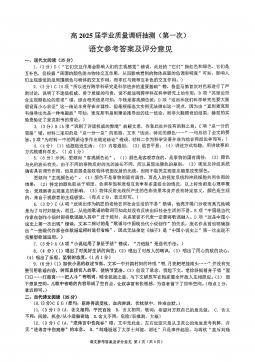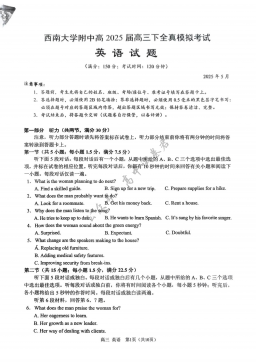Sybil was curious. "Is it a proper cure-all, then?"
"Never mind," he said, "and here's an end to chat." He was glancing bright-eyed down the lane.
"I see one, and you know what to do."
Sybil nodded, and began to pick her way through the market-crowd toward the man Mick had seen.
He was a ballad-seller, lean and hollow-cheeked, his hair long and greasy under a tall hat wrapped
in bright polka-dot fabric. He held both his arms bent, hands knotted as if in prayer, the sleeves
of his rumpled jacket heavy with long rustling quires of sheet-music.
" 'Railway to Heaven,' ladies and gents," the ballad-seller chanted, a veteran patterer. " 'Of
truth divine the rails are made, and on the Rock of Ages laid; the rails are fixed in chains of
love, firm as the throne of God above.' Lovely tune and only tuppence, miss."
"Do you have "The Raven of San Jacinto'?" Sybil asked.
"I can get that, I can get it," the seller said. "And what's that then?"
"About the great battle in Texas, the great General?"
The ballad-seller arched his brows. His eyes were blue and crazily bright, with hunger,
perhaps, or religion, or gin. "One of your Crimea generals then, a Frenchy, this Mr. Jacinto?"
"No, no," Sybil said, and gave him a pitying smile, "General Houston, Sam Houston of Texas. I
do want that song, most particular."
"I buy my publications fresh this afternoon, and I'll look for your song for you sure, miss."
"I shall want at least five copies for my friends," Sybil said.
"Ten pence will get you six."
"Six, then, and this afternoon, at this very spot."
"Just as you say, miss." "The seller touched the brim of his hat.
Sybil walked away, into the crowd. She had done it. It was not so bad. She felt she could get
used to it. Perhaps it was a good tune, too, one that people would enjoy when the balladman was
forced to sell the copies.
Mick sidled up suddenly, at her elbow.
"Not bad," Mick allowed, reaching into the pocket of his greatcoat, like magic, to produce an
apple turnover, still hot, flaking sugar and wrapped in greasy paper.
"Thank you," she said, startled but glad, for she'd been thinking of stopping, hiding,
fetching out the stolen shawl, but Mick's eyes had been on her every moment. She hadn't seen him,
but he'd been watching; that was the way he was. She wouldn't forget again.
They walked, together and apart, all down Somerset, and then through the vast market of
Petticoat Lane, lit as evening drew on with a host of lights, a glow of gas-mantles, the white
glare of carbide, filthy grease-lamps, tallow dips twinkling among the foodstuffs proffered from
the stalls. The hubbub was deafening here, but she delighted Mick by gulling three more ballad-
sellers.
In a great bright Whitechapel gin-palace, with glittering gold-papered walls flaring with
fishtail gas-jets, Sybil excused herself and found a ladies' convenience. There, safe within a
reeking stall, she fetched the shawl out. So soft it was, and such a lovely violet color too, one
of the strange new dyes clever people made from coal. She folded the shawl neatly, and stuffed it
through the top of her corset, so it rested safe. Then out to join her keeper again, finding him
seated at a table. He'd bought her a noggin of honey gin. She sat beside him.
"You did well, girl," he said, and slid the little glass toward her. The place was full of
Crimean soldiers on furlough, Irishmen, with street-drabs hanging on them, growing red-nosed and
screechy on gin. No barmaids here, but big bruiser bully-rock bartenders, in white aprons, with
mill-knocker clubs behind the bar.
"Gin's a whore's drink, Mick."
"Everybody likes gin," he said. "And you're no whore, Sybil."
"Dollymop, bobtail." She looked at him sharply. "What else d'ye call me, then?"
"You're with Dandy Mick now," he said. He leaned his chair back, jabbing his gloved thumbs
through the arm-holes of his waistcoat. "You're an adventuress."
"Adventuress?"
"Bloody right." He straightened. "And here's to you." He sipped his gin-twist, rolled it over
his tongue with an unhappy look, and swallowed. "Never mind, dear -- they've cut this with
turpentine or I'm a Jew." He stood up.
They left. She hung on his arm, trying to slow his pace. " 'Adventurer,' that's what you are,
then, eh, Mr. Mick Radley?"
"So I am, Sybil," he said softly, "and you're to be my 'prentice. So you do as you're told in
the proper humble spirit. Learn the tricks of craft. And someday you join the union, eh? The
guild."
"Like my father, eh? You want to make a play of that, Mick? Who he was, who I am?"
file:///F|/rah/New%20Folder/Difference%20Engine,%20The.txt (6 of 178) [1/14/03 11:24:13 PM]

 2024-12-06 5
2024-12-06 5
 2024-12-06 12
2024-12-06 12
 2024-12-06 30
2024-12-06 30
 2024-12-06 27
2024-12-06 27
 2024-12-06 33
2024-12-06 33
 2024-12-06 14
2024-12-06 14
 2024-12-06 38
2024-12-06 38
 2024-12-06 18
2024-12-06 18
 2024-12-06 50
2024-12-06 50
 2024-12-06 31
2024-12-06 31








 渝公网安备50010702506394
渝公网安备50010702506394
